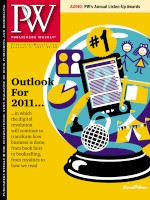The lot of a book reviewer isn't all roses. For one thing, you frequently have to commit to reading a lengthy, involved book—then, despite the investment of many precious hours, perhaps be willing to say that you despise the thing. I am a former reviewer and, for more than 15 years, an editor of others' reviews—one who saddled both myself and colleagues with this bookish burden.
And I am now an author, thank you very much.
I must tell you, though, that I'm experiencing something like a mild schizophrenia. On the one hand, I've shifted radically into pressure-salesman mode. On the other, I'm having trouble letting go of the editor impulse.
As a reviewer, I am a skeptic: clench-jawed and as cold-eyed as a Calvinist accountant. As an author, I am a true believer in my book's thesis, prone to dismiss all quibbles with a wave of the hand. "But wait—there's more!"
Not that my book's thesis has any shortcomings. Quite the contrary, my account of the history of American company towns can stand up to any test of time. Look on my work, ye mighty, and enthuse!
So I want reviewers' fulsome, unqualified praise. But every time I get it, the editor in me kicks in. I can't help myself.
For example, a very prominent recent review termed my book "delightful." Um, sir, I find myself thinking, this is a book at least in part about suffering and poverty. Yes, to be sure, there is a chapter entitled "Utopia," but the very next chapter is entitled "Exploitationville." Certainly, there is a lot of material on the benevolent impulses of model company town builders, but also a lot on the unmitigated greed of would-be gulag generators. Can we have a little balance here?
Then, a prominent book-reporting blog listed my work as one of the top 10 books published in September. "Anyone born in the 20th century needs to read this book," it elaborated. Huh? That's billions of people, the blue-pencil-armed editor in me reflects, slapping the eager and beaming author aside. "Does Amazon.com have free shipping to Heaven or something?" my inner editor wants to scrawl in the margin.
Finally, one, destined-to-remain-anonymous internationally distributed publication termed my effort "useful." Whaaaa? Why not "insightful" or "provocative" or "mind-expanding"? Indeed, why not "luminous"? Let's rethink that adjective, dude.
All the same, one looks no gift horse in the mouth. No opportunity for exposure can be scorned, no matter what the cost. Who can stand to return to the daily grind after being interviewed on national television or chatting with Swedish reporters on the phone? I've appeared on lots of National Public Radio affiliate programs, along with two 1 a.m. talk-radio shows, both based in California. The radio hosts are generous with their flattery, and the callers sound eager to plunk down cash in order to luxuriate in my profound insights.
Moreover, the callers have information to impart. There is a truck driver from Michigan with tales of Gary, Ind., and a former Hershey's chocolates employee who found factory life too confining. There is a one-time citizen of an East Texas timber town and a man who grew up in Richmond, Calif., home to four Kaiser Industries' shipyards during WWII. There's even a woman who volunteers an apocryphal tale of Milton Hershey's girlfriend Tootsie, for whom she says the Tootsie Roll was named. (I refrain from telling her that Hershey doesn't make that product.)
Ah, celebrity. Perhaps I can slay my inner editor after all.
One final problem, though: the late-night appearances have wrecked my sleep habits, and my pillow is currently suing for alienation of affection. Still, if there are more requests for night-owl radio interviews, bring 'em on. The coffee pot is locked and loaded.
Hardy Green is the former BusinessWeek books editor. Basic Books published his The Company Town: The Industrial Edens and Satanic Mills That Shaped the American Economy, in September.



 Volume 258
Issue 01
01/03/2011
Volume 258
Issue 01
01/03/2011





